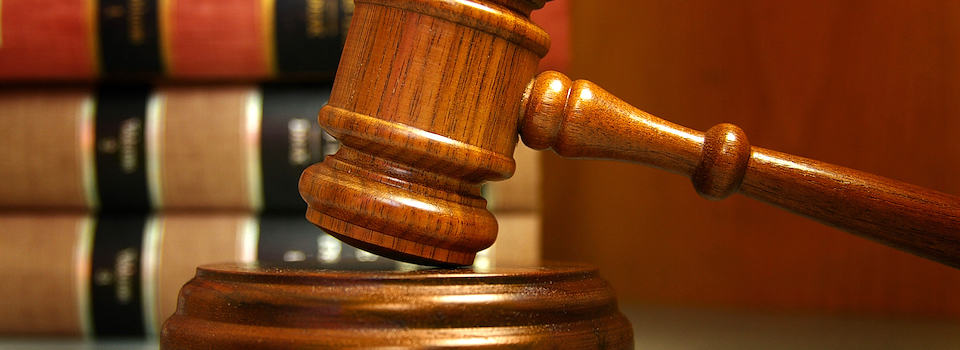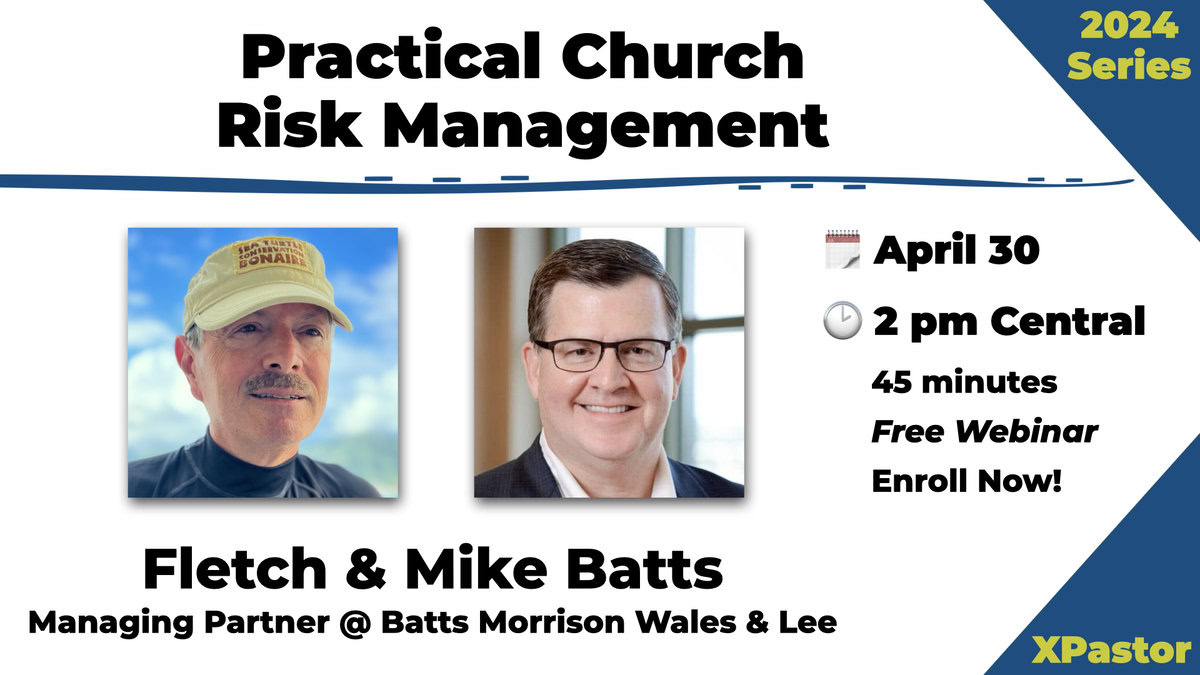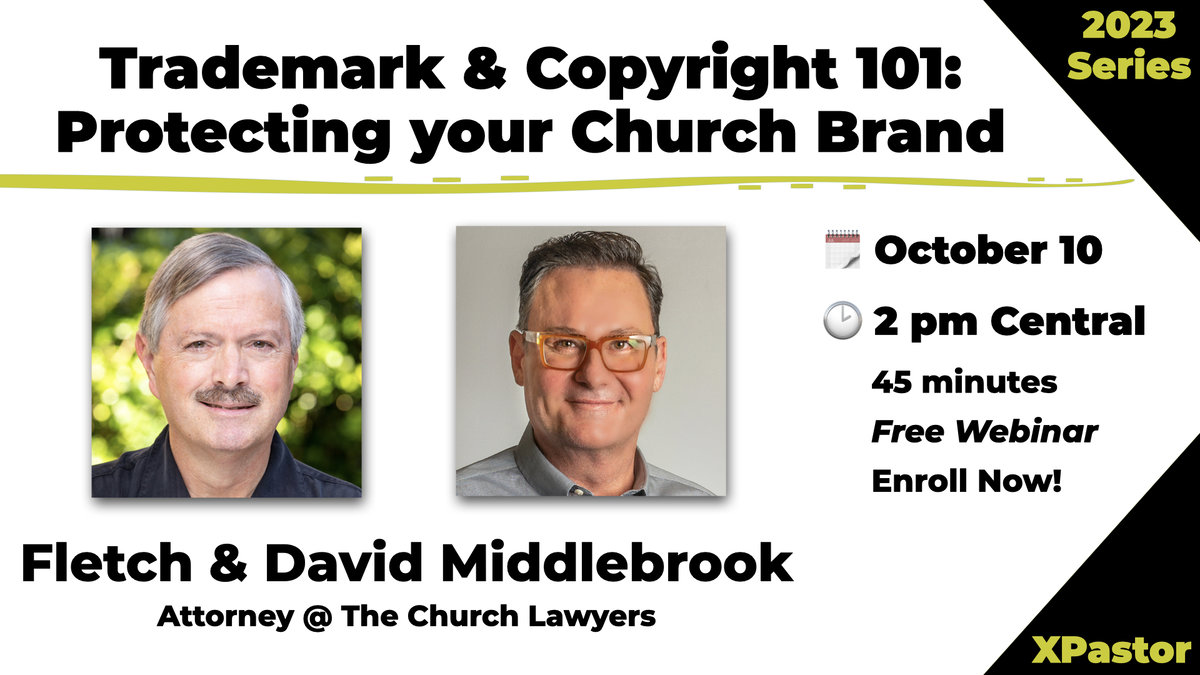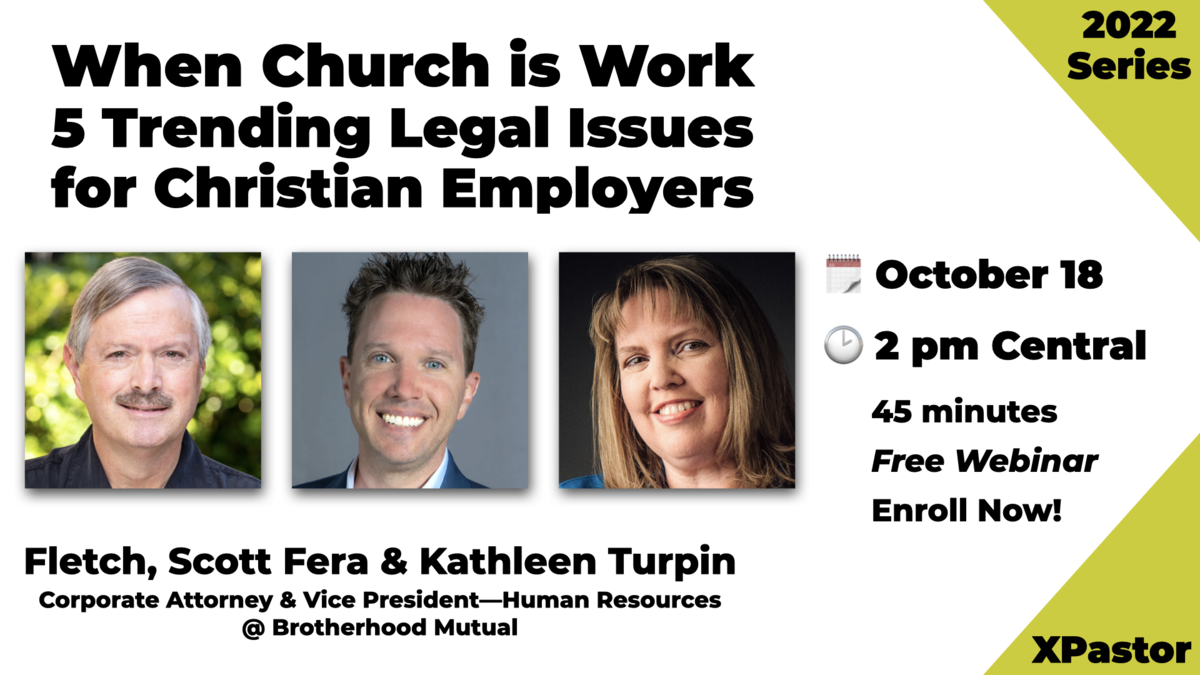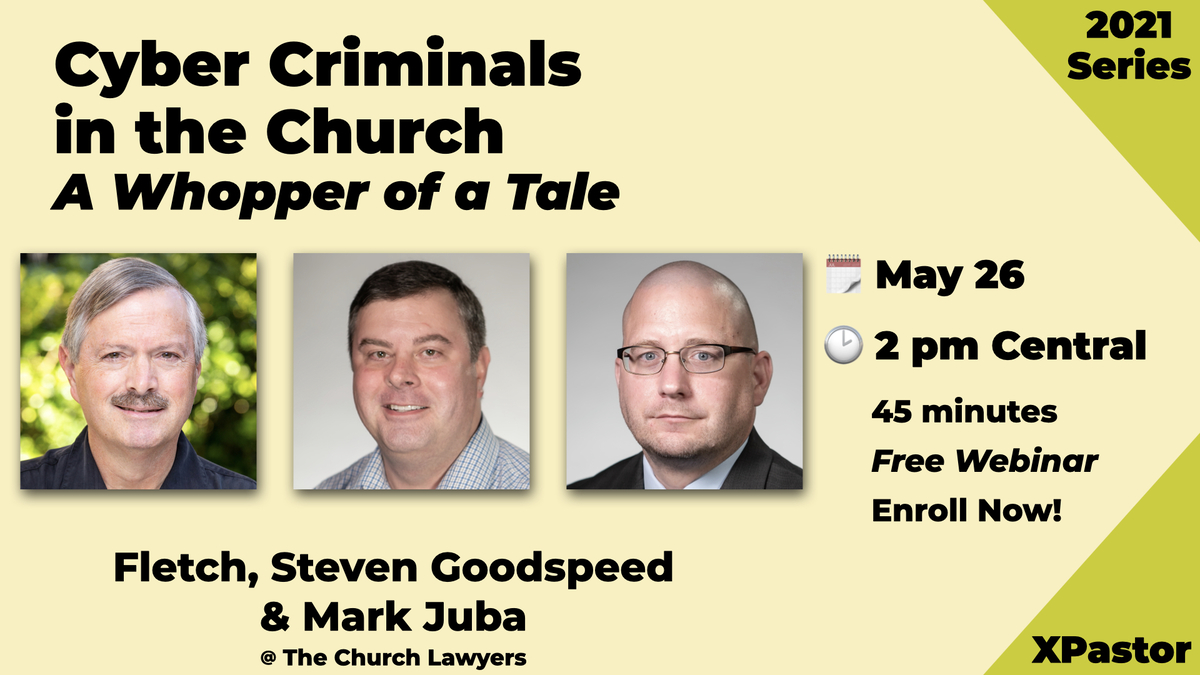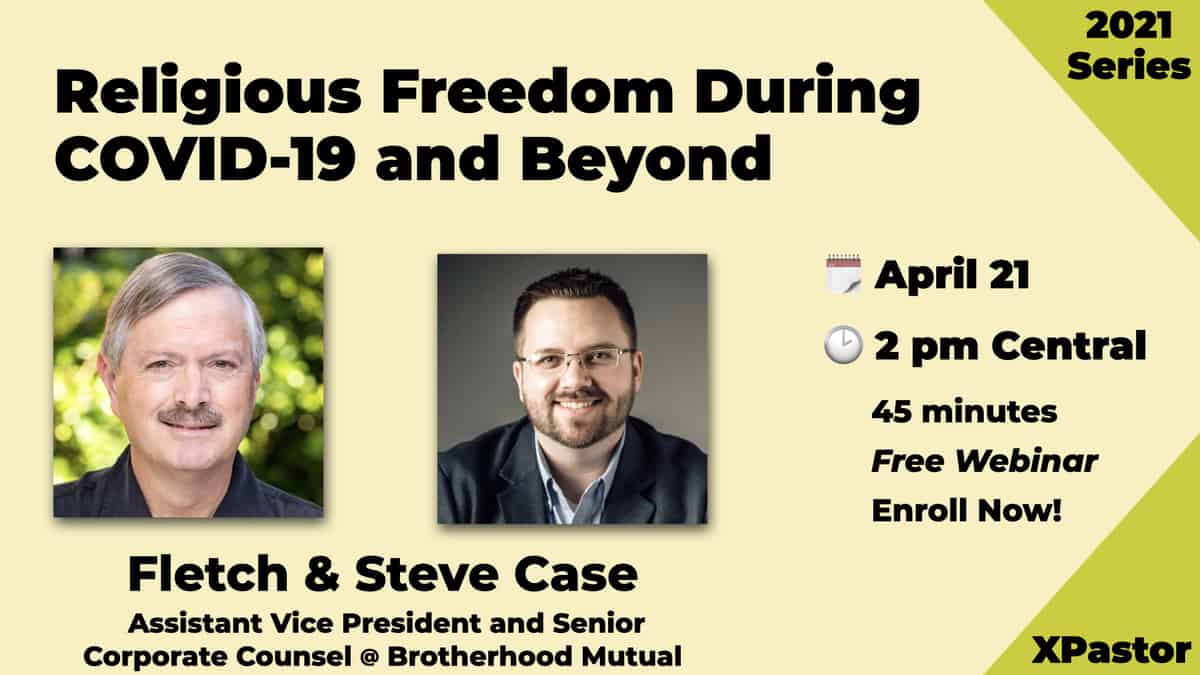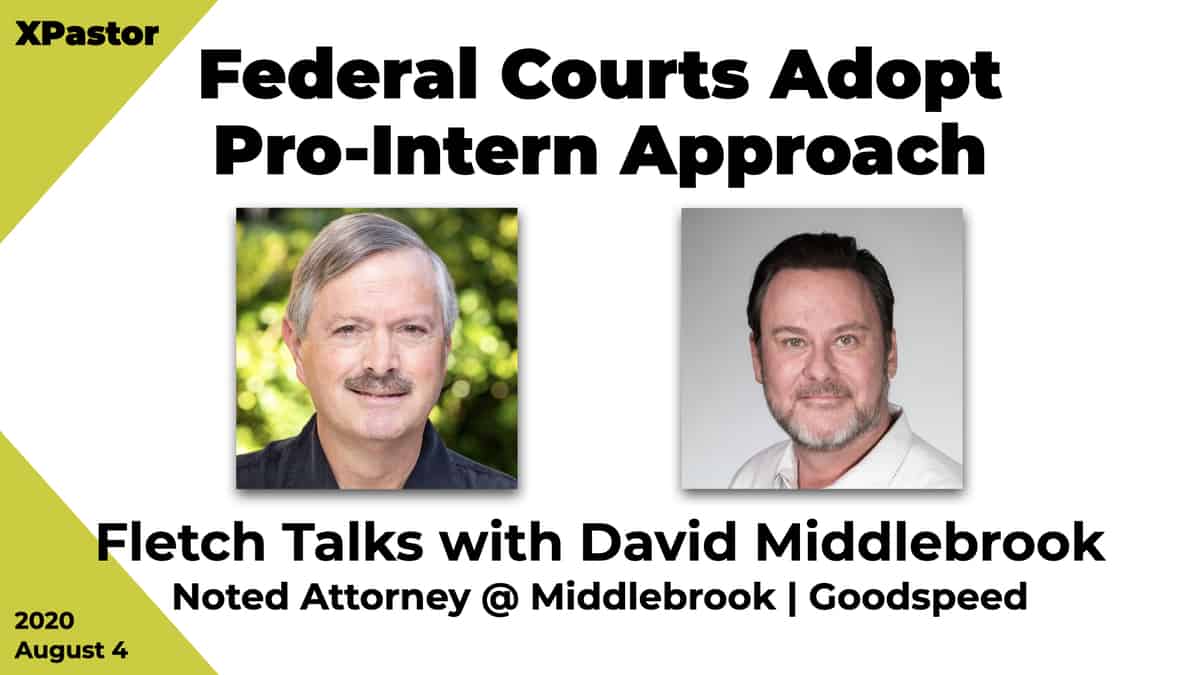Think twice before singing that new worship song next Sunday or before using that scene from a popular movie as an illustration in your sermon. Believe it or not, even with the very best of intentions, courts have found churches financially liable for using the works of another person without permission.
Copyrighting is an important concept for all churches and ministries to understand in order to protect themselves, both against infringing on the rights of others and on having their own rights infringed upon. With the incredible creativity that has been flowing out of Christian ministry in the last decade, it is probable that many churches and ministries will have their own copyrightable works. And those works should be afforded every legal protection.
Definition of a Copyright
The concept of copyrighting materials originated with Article I, Section 8 of the United States Constitution, which gave Congress the authority “to promote the progress of … the useful arts, by securing for limited times to authors … the exclusive right to their respective writings.” Copyright law was designed to give creators an incentive to produce art and science. When an author feels protected in his endeavors, he is more likely to produce works—and this, in turn, is beneficial to society as a whole.
A “copyright” is the legal right granted to an author, composer, playwright, publisher, or distributor to exclusive publication, production, sale, or distribution of a literary, musical, dramatic, or artistic work. An example of this would be a sermon or song. A copyright gives its owner an exclusive right to control the use of the work and federal law secures that right for a limited period of time. Copyright is a property right, and, therefore, can be sold, given away, inherited, leased, and divided. The rights associated with copyright include:
- Reproduction of works
- Preparation of derivative works based on the original work
- Distribution of copies of works
- Performance of works
- Display of works
However, for an author to obtain a copyright, his original work must be fixed in a tangible medium. This means that ideas and facts are not enough to obtain a copyright. The work must be in written form, recorded, photographed, videotaped, etc.
Protect Your Church’s Creative Ideas
Churches often wonder whether someone else is allowed to make use of the church’s name or creative ideas, and, if so, what can or should they do to prevent such use. To ensure protection, a church should file for copyright protection and trademark registration. In the event a church or individual wants to register a copyright for work that has been created, the church or individual must submit a completed application form; a nonrefundable filing fee, (which is $35 if you register online or $45 if you register using a paper application); and a nonreturnable copy or copies of the work to be registered. Application forms can be obtained from the United States Copyright Office at www.copyright.gov. In addition, registration can be completed online for a reduced fee.
Registration of a work has many advantages. First, it gives you the ability to bring suit against an infringer. In order to sue for infringement, you must register your work. Whenever someone is responsible for violating a copyright, the penalties can range from $500 to $20,000, if done innocently, and up to $100,000, if done willfully (knowing the material was copyrighted). It can also include payment of the copyright owner’s actual damages (that is for the loss or damage to their property—which can go as high as whatever they can convince a judge or jury), an injunction, impoundment of property, attorneys’ fees, court costs, etc. The available damages for a trademark violation can be even greater. In some instances, the trademark owner will be entitled to treble damages—which are intended to punish the violator—for a violation.
Individuals, churches, and ministries sometimes try to circumvent the formal copyright registration process by using a “poor man’s copyright.” Essentially, this practice entails sending a copy of your work containing a copyright notice to yourself. Under federal copyright law, there is no such thing as a “poor man’s copyright.” Individuals should be cautioned from utilizing this type of procedure as it does not take the place of formal registration and does not afford the same benefits as formal registration.
Prevent Your Church from Copyright Infringement
Misuse of copyrighted materials is common in churches and ministries. There is considerable confusion among church employees and leaders on how to address the issue.
Of all the exclusive rights owned by the copyright owner, the one causing the most difficulties for churches is the copyright owner’s exclusive right to reproduce the work (i.e. make copies). In addition, many churches record their church service in its entirety—including the worship portion of their service—and broadcast the service by television, radio, podcast, or other media outlets. However, unless the church obtains a license for broadcasting the copyrighted music used during the worship service, they will be responsible for copyright infringement.
One way to avoid copyright infringement is to obtain an annual license for the use of copyrighted materials. However, once a church obtains a license, the church must be careful to act in compliance with the terms of their contract with the licensing authority. For instance, some licensing organizations require that the church include copyright information on all songs reproduced under the license. This means that the church would responsible for including the song title, writer credit(s), copyright notice, and your church’s license number on the bulletin, song-sheet, or computer projection. Always remember to abide by the terms of your contract!
In addition to obtaining licenses, Churches can avoid copyright infringement liability by implementing policies that ensure copyright compliance. For example, to avoid copyright infringements, a church should:
- Buy enough originals so that everyone has their own or can easily share (i.e. hymnals); or
- Create internal, written policies and procedures (perhaps have access codes to copy machine or have the copy machine in an area that the office staff can monitor use); or
- The church or ministry should adopt a rule mandating that employees not install duplicate copies of software on their computers without permission from the church administrator or computer manager.
- If a church has a website and imports materials to that site that are not created specifically by church employees, then those materials must be reviewed in order to ensure that they are in compliance with copyright laws.
Churches and ministries should not act out of fear regarding copyright issues. By implementing the proper procedures and keeping license agreements current, they should be free to utilize all creative means to minister to their congregation without worrying about legal repercussions.

